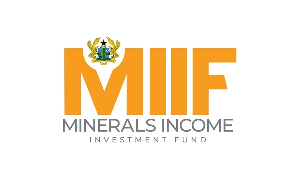The President of the Association of Customs House Agents, Yaw Kyei cautioned the general public to be pro-active by doing all the necessary checks with the state agencies before parting away monies to agents to clear cargo on their behalf.
Narrating the modus operandi of some unscrupulous clearing agents who collaborate to defraud importers, Mr. Yaw Kyei also revealed that some importers could be blamed for their own misfortunes as they are too preoccupied with the desire to beat down the system to pay lower fees to the state and therefore get in bed with quack agents who would equally bait them with such lofty but false deals.
Speaking live on Eye on Port’s interactive panel discussion on falsification of documents at Ghana’s ports and its impact on doing business, he emphasized that fees such as duties due the state and GPHA handling fees are not negotiatable and anyone posing to be capable of bargaining those is likely to be a fraudster.
“Importers are not doing themselves any good by always looking for the cheapest means of clearing goods from the port. I keep emphasizing that the only charge you can negotiate is the agent’s clearing fee and other expenses pertaining to the agent’s work. Apart from that, do not try to expose yourself to negotiate with the agent on government taxes and GPHA charges,” he warned.
The Chief Revenue Officer and Head of Classification, Customs Technical Services Bureau, Mr. Ena Kwaku Blege also said one underlying challenge common is that historically and presently importers have only been interested in the delivery of their goods and been disinterested in the processes that lead to the delivery leading to their susceptibility.
“The problem with most traders is that they are only interested in having the goods delivered at their doorsteps and they pay whatever amount it cost to do that, and this is what leads to the inflation of prices by some of these agents. They do not probe. They do not ask for the customs declaration. They rely on goodwill,” he said.
He said, speculation that some individuals or syndicates liaise with some customs officials to evade taxes by declaring false information is probably false, as customs’ systems will not allow lower values to be paid on cargoes with stipulated transactional values.
“You know customs has a transactional price database, so if you bring in invoices for which the values go beyond a certain stipulated standard, definitely Customs is not going to agree,” he said.
Technology inadequate?
Touching on falsification of documents against the GRA, he disclosed that technology has made it almost impossible to detect falsification as it is difficult to differentiate between a forged document and an authentic one until examination is done.
“You know at the technical services bureau where I work, we work in a paperless environment where everything is scanned and uploaded into a system so ordinarily you would not be able to determine at first hand whether a document is actually been tampered with or not. Technology has made it almost impossible to distinguish between a genuine copy and an altered copy using sophisticated scanning methods,” he revealed.
He said importers or their agents or a collaboration between the two usually declare falsely the country of origin of product as a means to beat down the duty payable on cargo.
CTN the antidote
The Customs Official said the Cargo Tracking Note when fully implemented would enable the Customs Division determine the true value of goods in order to secure government as the CTN makes use of Customs to Customs international collaboration.
“We have a system, the Cargo Tracking Notes which has been running for quite a while, but not fully fledged. With that the importer doesn’t have any influence on the information given directly to customs and that is helping us to a certain extent. It doesn’t help us only determine values but also other shipping information relating to the cargo coming in. Currently it is hard for goods coming from India to beat the system as India Customs have made their data available to us.”
Mr. Kyei mentioned that the CTN is not helpful because aside India, there are no customs-customs collaboration.
“As clearing and forwarding agents, we stood against the CTN on the basis that there is no customs to customs collaboration so there is no need for this CTN. He just gave an example of India where there is customs to customs collaboration and therefore very difficult to manipulate. But apart from India, other areas where there are no customs to customs collaboration and yet they have introduced the CTN,” he expressed vehemently.
Business News of Friday, 1 November 2019
Source: EoP













